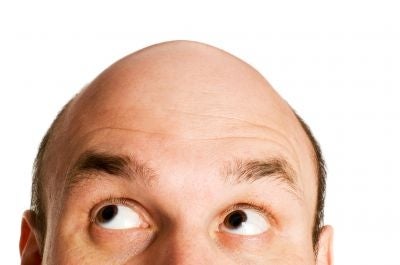Your support helps us to tell the story
From reproductive rights to climate change to Big Tech, The Independent is on the ground when the story is developing. Whether it's investigating the financials of Elon Musk's pro-Trump PAC or producing our latest documentary, 'The A Word', which shines a light on the American women fighting for reproductive rights, we know how important it is to parse out the facts from the messaging.
At such a critical moment in US history, we need reporters on the ground. Your donation allows us to keep sending journalists to speak to both sides of the story.
The Independent is trusted by Americans across the entire political spectrum. And unlike many other quality news outlets, we choose not to lock Americans out of our reporting and analysis with paywalls. We believe quality journalism should be available to everyone, paid for by those who can afford it.
Your support makes all the difference.A new study announced on January 12 reports that men using the hair loss treatment Propecia may experience some seriously bad side effects: loss of libido, erectile dysfunction, and growth of man breasts.
In addition to Propecia (finasteride), the study cites drugs such as Avodart (dutasteride) as having similar side effects. The new study, currently published online in The Journal of Sexual Medicine, examined drugs belonging to a group called 5a-reductase inhibitors (5a-RIs), which have been approved to treat lower urinary tract symptoms due to enlarged prostate, and may also prevent hair loss. Propecia is one of the drugs approved to treat hair loss examined in the study.
Yet US researchers issue "extreme caution" for those taking these drugs for either hair loss or urinary tract infections, due to side effects such as sexual dysfunction, the development of breast tissue in men, and depression brought by on by these side effects, researchers claim.
"Honest and open discussion with patients to educate them on these serious issues must be pursued prior to commencing therapy," urged study researcher Abdulmaged M. Traish of Boston University Medical Center in a statement. "In some patients, these adverse effects are persistent and may be prolonged and patients do not recover well after discontinuation from drug use."
In better news, earlier this month researchers discovered what may be an underlying cause of male pattern baldness: an inability of stem cells in the scalp to develop into the type of cells that make hair follicles. The discovery, published on January 4 in the Journal of Clinical Investigation, could give hope to men and women with hair loss, said the researchers in a release.
Last year, researchers also discovered a new gene related to hair loss that might facilitate therapy for many concerned. As reported by the science journal Nature, they found out that the gene APCDD1 is often responsible for so-called male pattern baldness, a hereditary process beginning during childhood. Officially termed hair follicle miniaturization, this process causes thick, dark hair to be replaced by much finer hair.
Read about hair loss and prevention here:
http://www.myhealthnewsdaily.com/hair-loss-alopecia-treatment-0251/
Access the study: http://onlinelibrary.wiley.com/doi/10.1111/j.1743-6109.2010.02157.x/abstract
Watch a video on ways to prevent balding: http://www.youtube.com/watch?v=2GHvyt6EdDI

Join our commenting forum
Join thought-provoking conversations, follow other Independent readers and see their replies
Comments